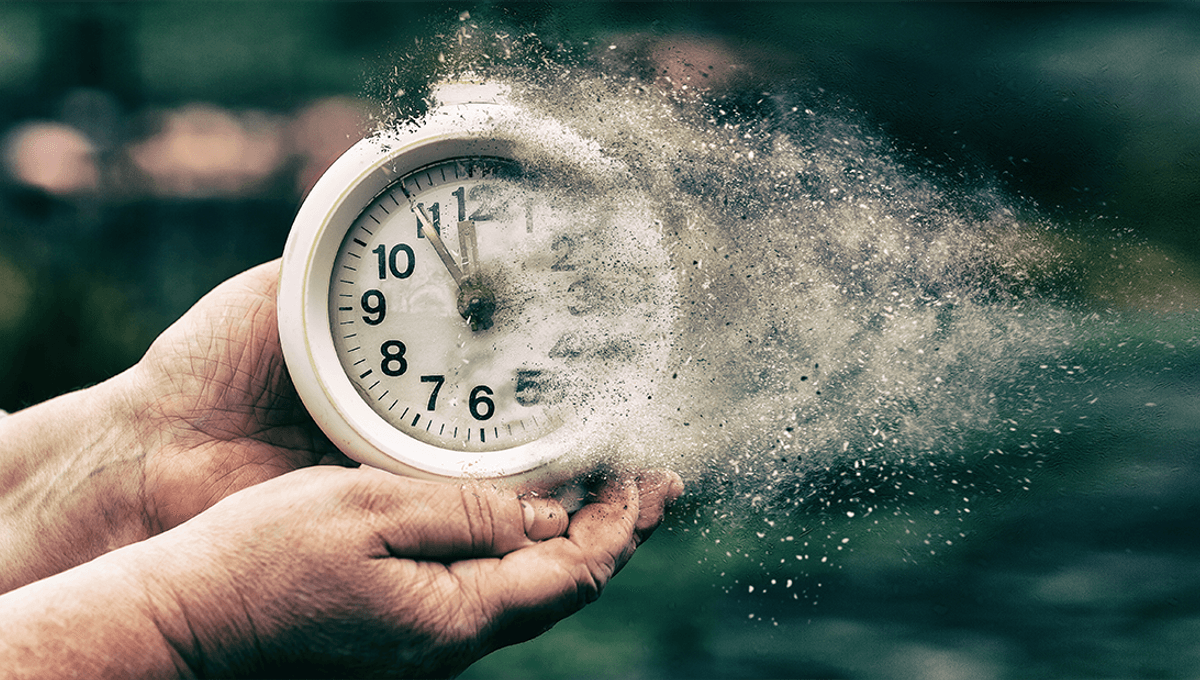
Ask most people getting on in years, and they will tell you that time seems to move more quickly as you slowly run out of it. Those summers that used to last forever or even drag on seem to fly by in seconds, and the years don’t seem to last as long as they used to when you were younger.
So why does this happen? There are a few ideas out there that may explain the phenomenon. The first is related to how much new information we are absorbing during our time.
In a series of experiments in the 1960s outlined in his book On the Experience of Time, psychologist Robert Ornstein showed how perception of time can be shaped by how much new information our minds process.
In one experiment, he showed volunteers diagrams of varying degrees of interest, before asking them to estimate how much time had elapsed. Though the diagrams were displayed to the subjects for the same amount of time, the subjects reported that diagrams with more interesting designs were displayed for longer than the less interesting designs.
In a separate experiment, subjects were asked to listen to audio with varying amounts of information on them, in the form of clicking sounds and household noises, before they were again asked to estimate the amount of time they were listening to it. Where there was more information – for instance, if there were a lot more clicking noises – the subjects reported the task as having lasted longer.
So why does this lead to time seeming to slow down as we age?
“The theory goes that the older we get, the more familiar we become with our surroundings. We don’t notice the detailed environments of our homes and workplaces,” Dr Christian Yates, a senior lecturer in mathematical biology at the University of Bath, explained in a piece for The Conversation.
Everything is new to children, however. Think of how excited they are about getting on a train and seeing the sights around them, versus how little attention you pay on your commute.
“This means children must dedicate significantly more brain power re-configuring their mental ideas of the outside world,” Yates adds. “The theory suggests that this appears to make time run more slowly for children than for adults stuck in a routine.”
A similar idea, outlined in a 2019 paper, puts the blame on how quickly our minds process images as we age.
“People are often amazed at how much they remember from days that seemed to last forever in their youth,” Adrian Bejan, the J.A. Jones Professor of Mechanical Engineering at Duke, explained in a statement. “It’s not that their experiences were much deeper or more meaningful, it’s just that they were being processed in rapid fire.”
As nerves and neurons age and become more complex, it takes longer for signals to take their paths than it does when you are young.
“The human mind senses time changing when the perceived images change,” Bejan added. “The present is different from the past because the mental viewing has changed, not because somebody’s clock rings. Days seemed to last longer in your youth because the young mind receives more images during one day than the same mind in old age.”
Another idea is that a period of time (e.g. a month) seems shorter as we have experienced more time to compare it to.
“Proportional theory makes intuitive sense if we consider how a year in the lifespan of someone who is 75 years old may feel much quicker, for instance, in comparison to a year in the life of a ten-year-old,” neuroscience researchers Muireann Irish and Claire O’Callaghan explain in a piece for The Conversation.
“Memory may hold the key to time perception, as the clarity of our memories is believed to mould our experience of time. We mentally reflect on our past and use historic events to achieve a sense of our self existing across time.”
While the phenomenon is still being investigated by various teams, there is a suggestion that our perception of time is altered by the amount of new and interesting experiences we have as we grow older. Try to have as many as you can, before it’s too late.
Source Link: Why Does Time Seem To Move Faster As You Get Older?